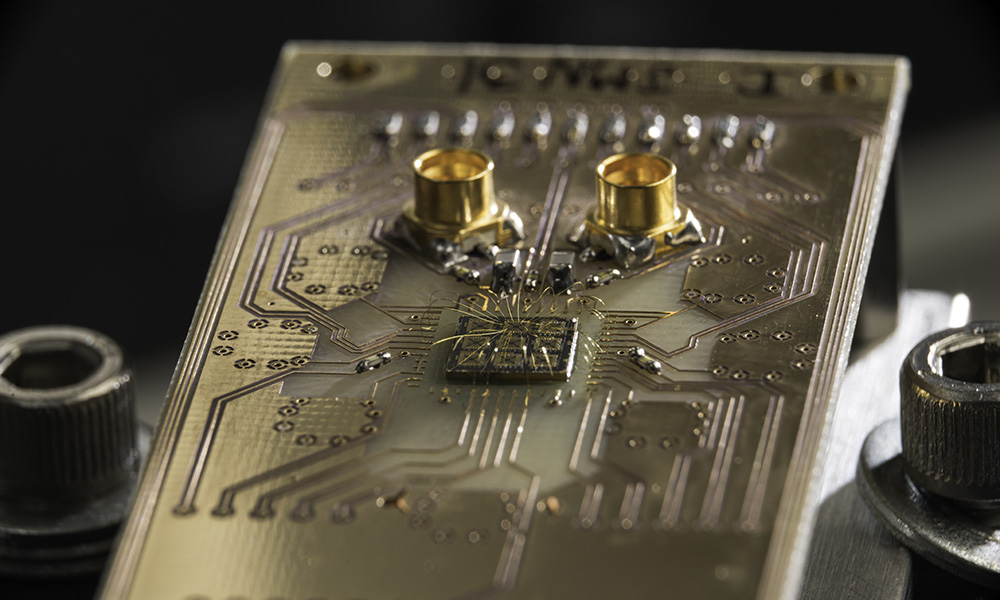
Researchers continue to confront major hurdles in quantum computing
With new insights on the problem of noise in quantum computing, Rochester researchers make major strides in improving the transfer of information in quantum systems.
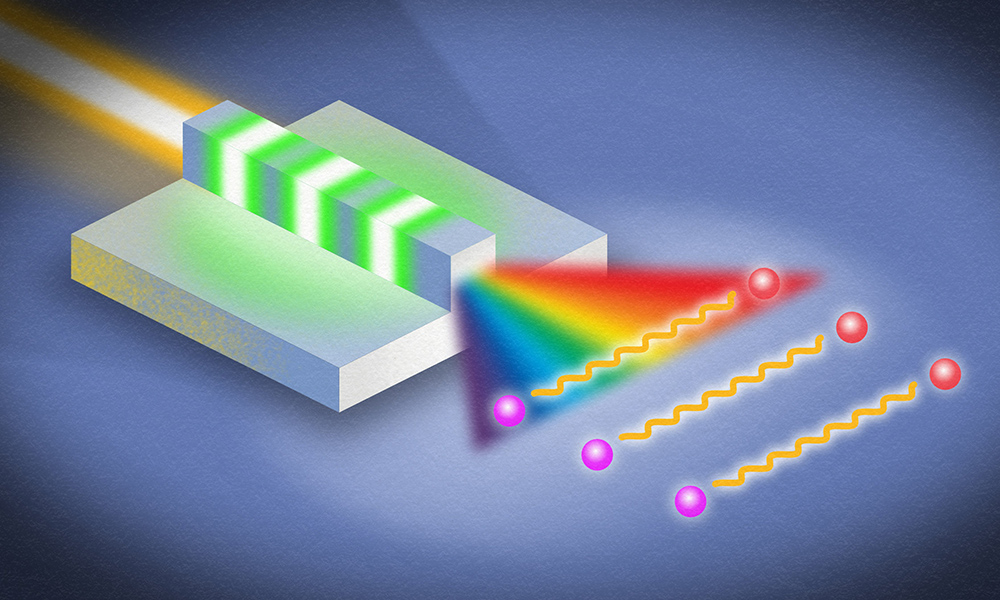
Rochester researchers set ‘ultrabroadband’ record with entangled photons
Engineers have taken advantage of the quantum entanglement phenomenon to generate unprecedented bandwidth and brightness on chip-sized nanophotonic devices.
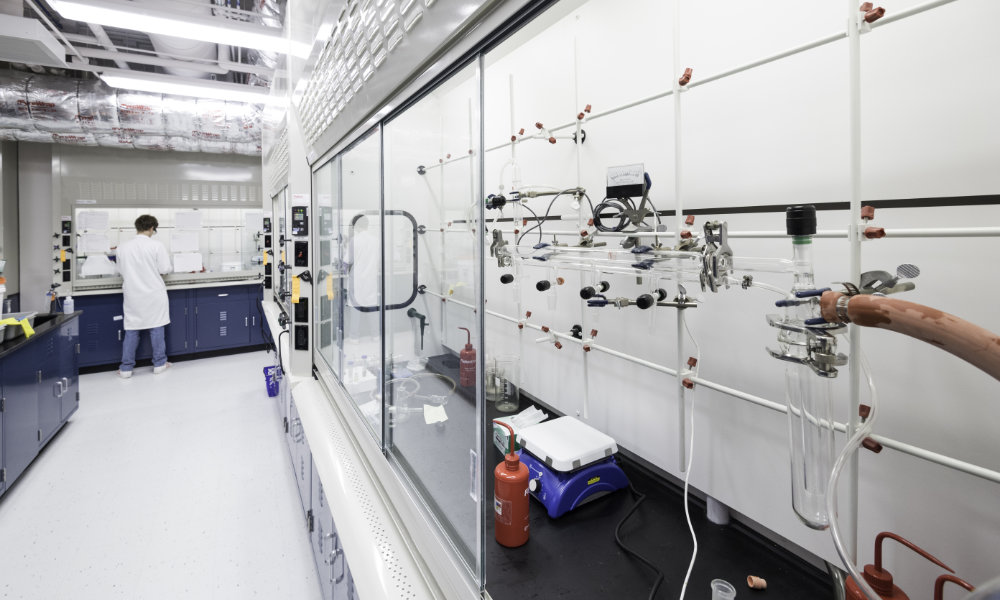
‘High risk’ project uses quantum science to unlock new chemical reactions
Rochester scientists have secured national funding for a multi-institutional research effort that could alter the basic rules of chemistry.
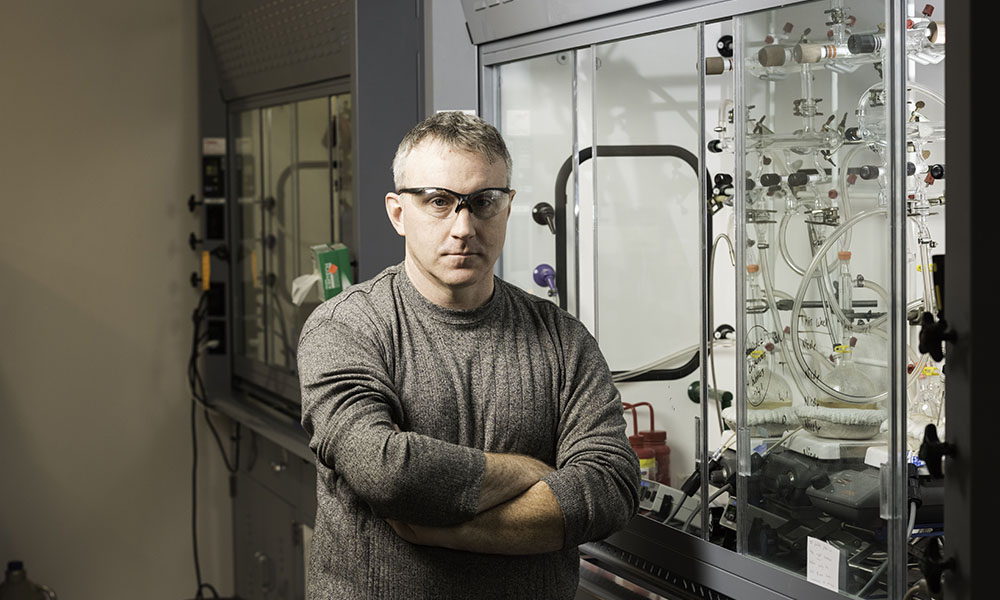
Rochester researchers join national initiative to advance quantum science
Rochester researchers led by Todd Krauss, a professor of chemistry, are joining a major US Department of Energy-funded initiative to advance quantum science and technology.
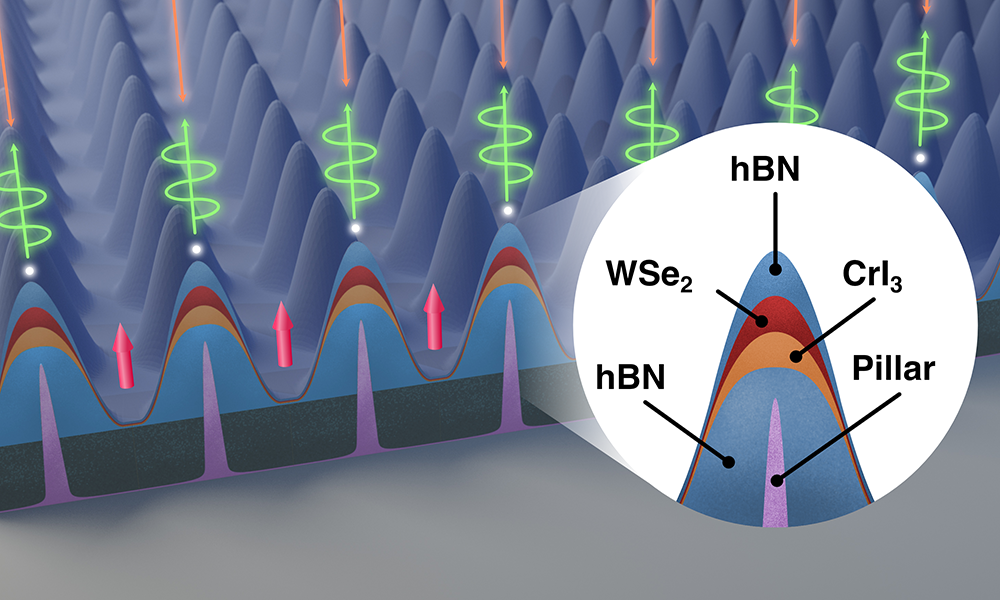
Building a quantum network one node at a time
New research demonstrates a way to use quantum properties of light to transmit information, a key step on the path to the next generation of computing and communications systems.
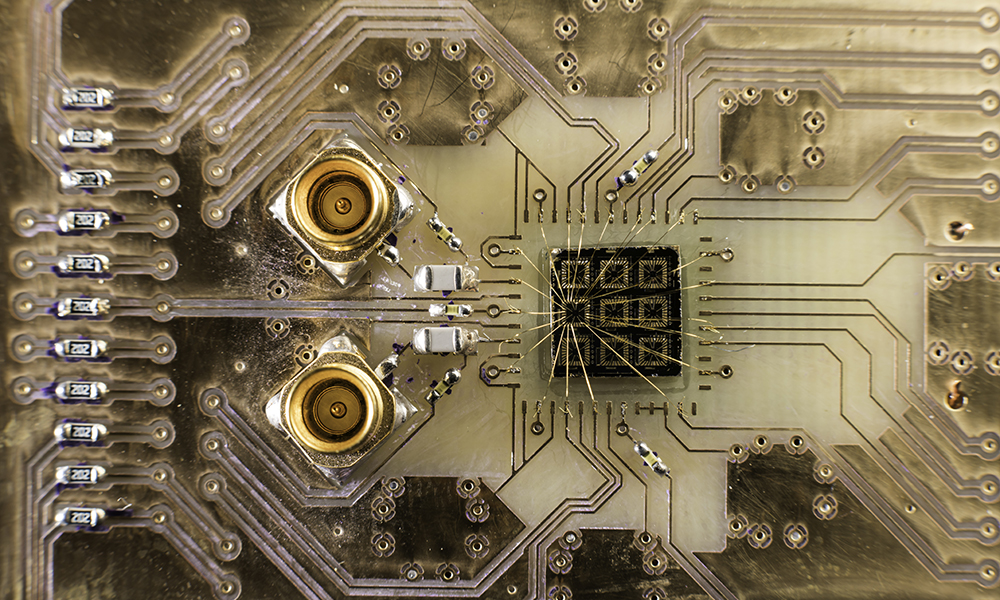
Quantum engines? Entanglement as fuel?
It’s still more science fiction than science fact, but perfect energy efficiency may be one step closer due to new research by Rochester physicists.

Is teleportation possible? Yes, in the quantum world
Rochester physicists are exploring new ways of creating quantum-mechanical interactions between distant electrons. The research marks an important advance in quantum computing.
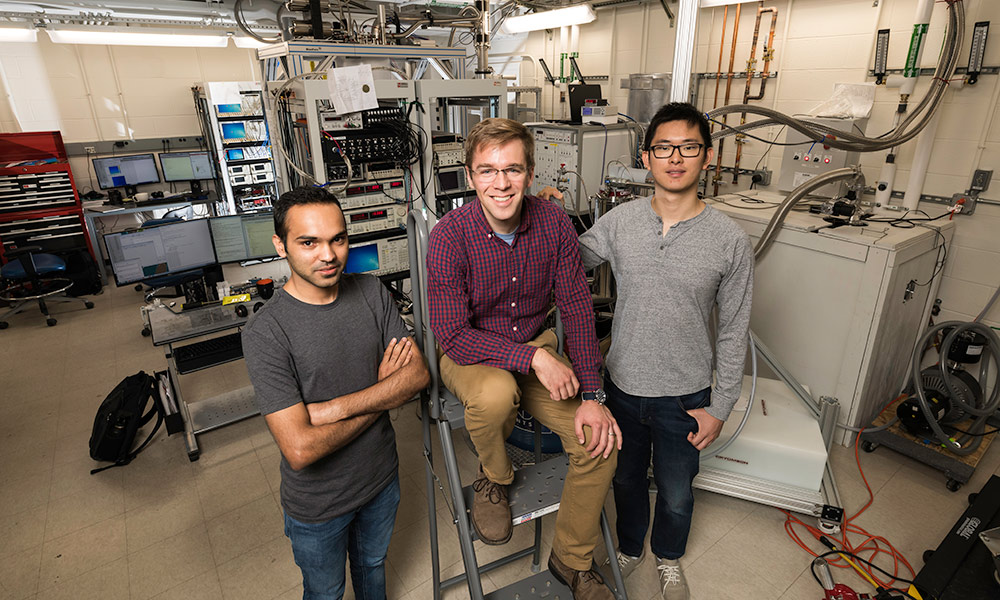
One small step for electrons, one giant leap for quantum computers
Quantum computing has revolutionary potential, but transferring information within a quantum system remains a challenge. By transferring the state of electrons, Rochester research brings scientists one step closer to creating fully functional quantum computers.
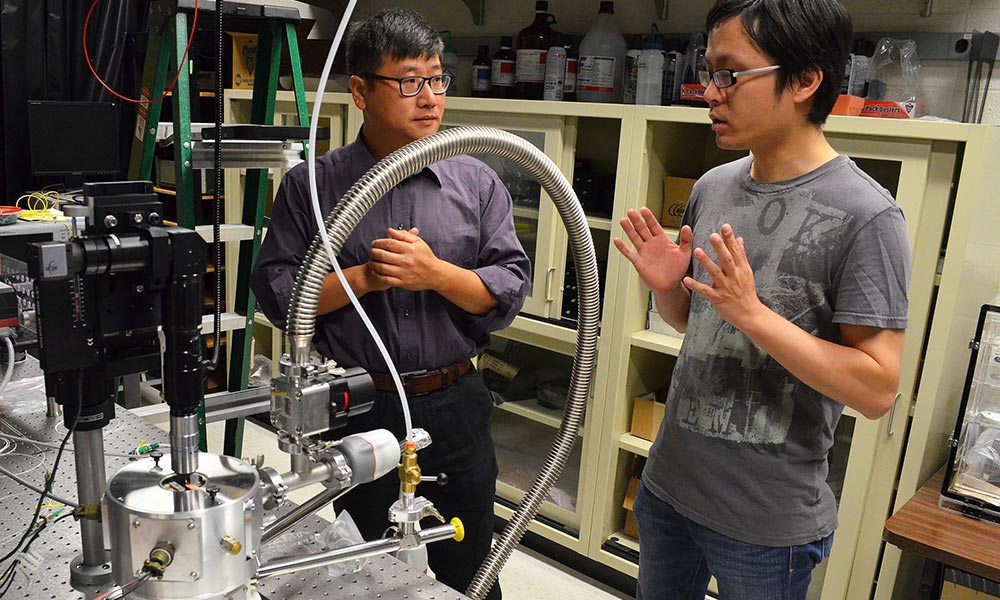
Qiang Lin receives nation’s top honor for early-career investigators
Qiang Lin, an expert in integrated quantum photonics and nonlinear nanophotonics at the University of Rochester, is a recipient of the Presidential Early Career Award for Scientists and Engineers (PECASE).

Researchers develop superconducting quantum refrigerator
Physicist Andrew Jordan and his fellow researchers harnessed superconductivity to conceive of a quantum refrigerator that could cool atoms to nearly absolute zero temperatures.
